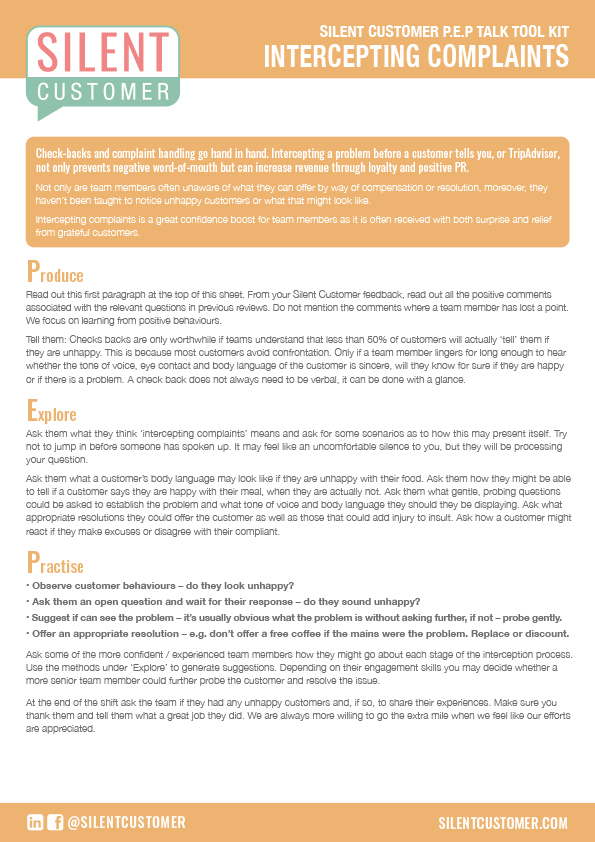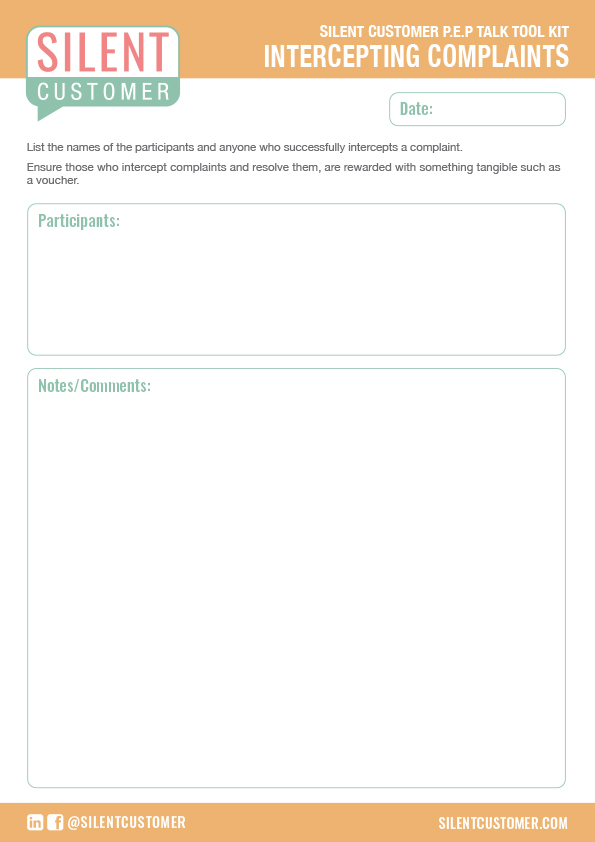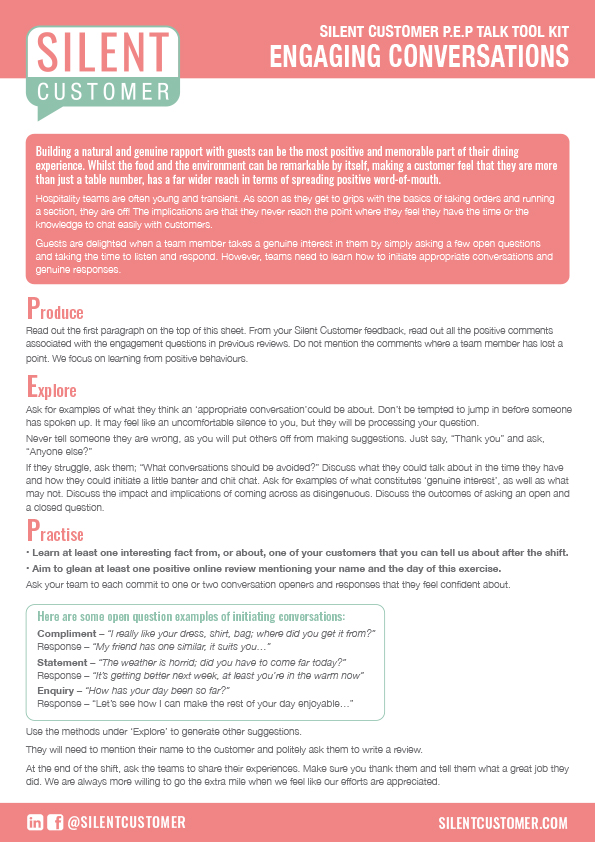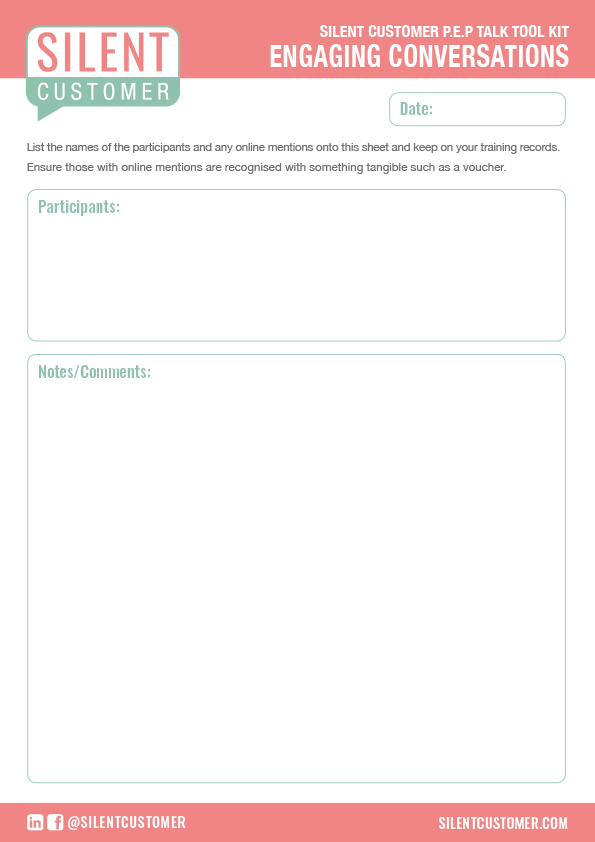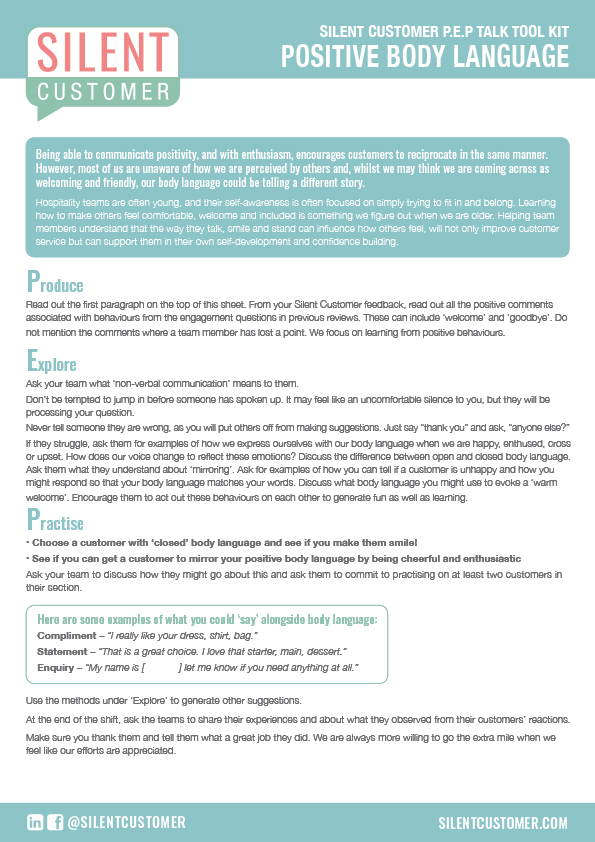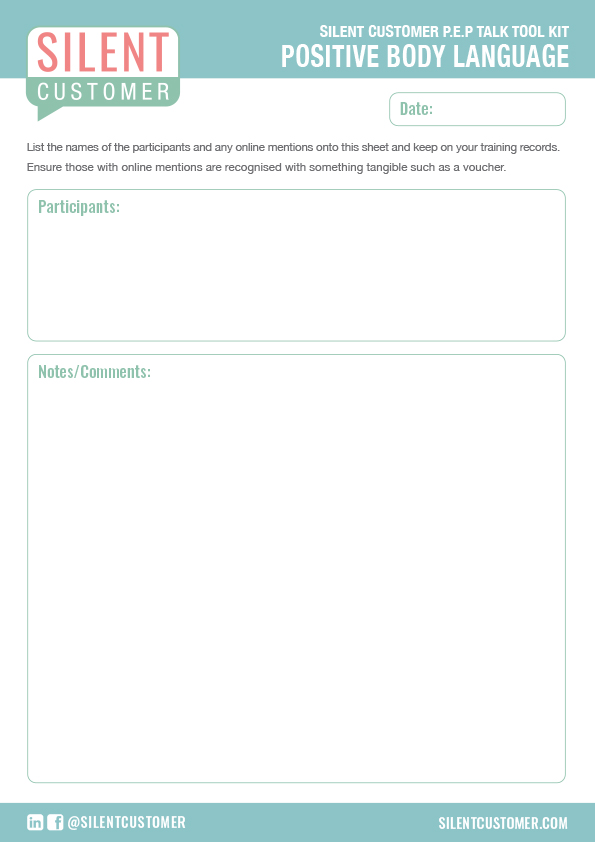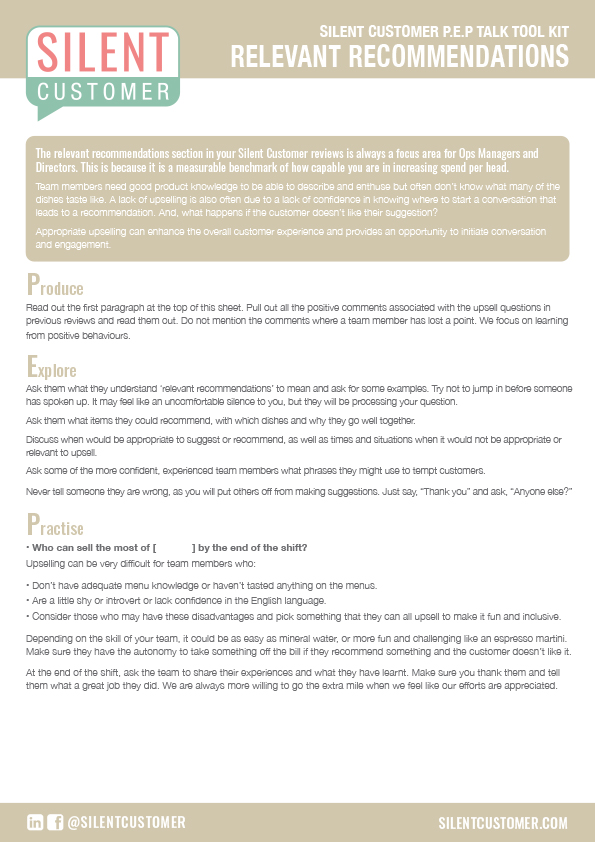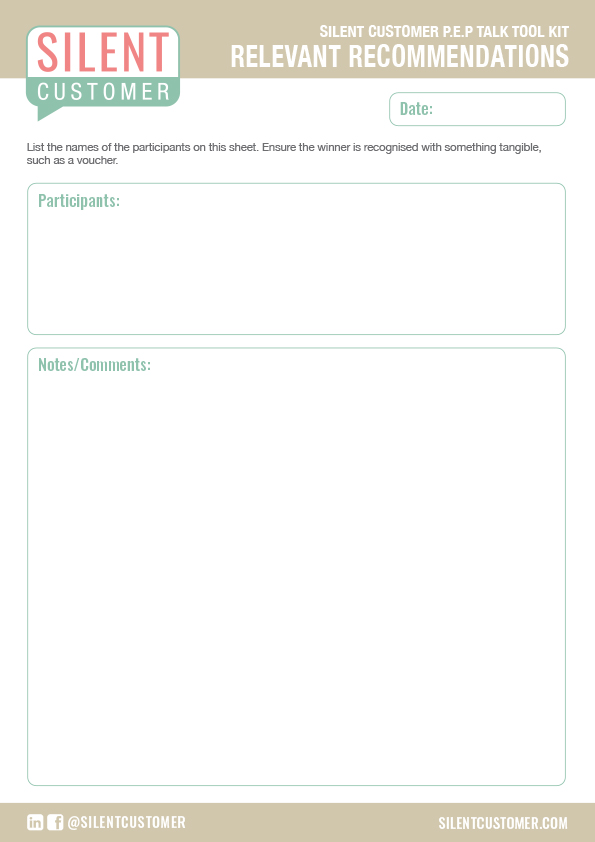
In this blog we will explore how to give feedback kindly, this is a topic which has come to our attention after we sent a survey to our Silent Customers (mystery shoppers) asking for feedback about us! Yes, we ask for feedback too!
One Silent Customer said they didn’t understand why we insist on giving feedback kindly when they have had a very bad experience on a mystery dining visit. They said: “Sometimes it’s hard to be totally honest when you’ve had a truly dire experience. I think honesty is integral to feedback so sometimes it doesn’t feel completely genuine if you’re worried about your comments being construed as unkind”.
I thought this was a good opportunity to how to give feedback kindly and explain the difference between ‘kind, honest, feedback’ and ‘unkind, honest, feedback.
Criticism is a gift
“Criticism is a gift” I hear this so often and it drives me mad with angst. I suppose an unwanted gift is still a gift but where is the value in that?
If someone gives you, in your opinion, a hideous vase, do you:
A) Re-decorate / re-furnish your entire lounge to match
B) Put it away in a cupboard and bring it back out again when they come round
C) Chuck / give it away because it’s taking up valuable cupboard space
‘Criticism’ is the same as an unwanted gift. It’s largely ignored and more often than not thrown away after a short period of disappointment along with the person who insulted you with it in the first place.
Honest feedback
Many people struggle with the concept that, despite an experience in a pub or restaurant that leaves them trembling in disbelief, releasing a torrent of harsh and negative words will not miraculously turn a struggling business into a gold mine.
They tell me things like. Well, they need honest feedback and if they don’t hear the truth how will they know? Well, I say, what if I told you that your choice of make-up and clothes makes you look cheap and desperate and that you will never meet a partner looking like that? Are you feeling motivated to rush out to the shops and have a fun time re-styling yourself? No? Well, it’s just criticism!
Whether you are a Silent Customer reviewing a pub, a boss giving their employee an annual appraisal or a friend offering advice, deliver your feedback kindly, objectively, empathetically, and proffer suggestions that are reasonable and achievable. Not only will you motivate positive change they will probably cherish your gift for a lifetime, which is another reason why it’s so important to understand how to give feedback kindly.
How to give feedback kindly as a mystery shopper
It’s hard to take a positive tone when you’ve had a bad experience in service or food. But that’s what we have to do.
Remember that you have been invited, at the expense of the client, to review their business. They welcome honest feedback and don’t expect every mystery visit to be perfect, but they do reasonably expect that you’ll explain what happened objectively and without vitriol and sarcasm.
Keep in mind that not only the management team but the staff themselves will read the report. We believe that nobody who runs a pub or restaurant goes to work to do a bad job or disappoint customers. They’re working hard in an often tough and pressured job and believe they’re doing their best.
Be honest and sincere, but think about how you’d deliver the feedback to the manager or owner face to face. If you wouldn’t say it that way, don’t write it that way.
Kind negative feedback V unkind negative feedback
If you mark down, explain neutrally what happened and make a positive statement about what could have been a better way to do it:
Kind comment: ‘I would have liked the waiter to make eye contact and to have greeted me immediately’
Unkind comment: ‘I was disappointed that the waiter ignored me when I arrived.’
Could V Should
‘Could’ is often easier to accept than ‘should’ in feedback and makes statements feel less judgmental.
Polite, suggestive comment: ‘The team member could have cleared the table more quickly’
Supercilious, impolite comment: ‘The team member should have cleared the table more quickly.’
The word disappointed
We are not advocates of the word disappointed.
If your meal was served cold, it goes without saying that you would be less than thrilled about it. You don’t need to rub salt into the wound by adding the word ‘disappointed’ at the end of the sentence.
Imagine going to a friend’s house for dinner: Your host is already embarrassed that they have to re-heat your food but then you tell them how ‘disappointed’ you are! I understand you are not a paying customer in this situation, but restaurateurs still have feelings!
Silent Customers are motivators, not critics
Our language and choice of wording needs to show that. If something is wrong, you don’t need to repeat it, use harsh words or let it colour the rest of your review. You don’t need to say you were ‘disappointed’ when you describe a fault – it feels too disapproving. We are there to observe and report.
Are your mystery guests giving feedback kindly? No? Get in touch with us at Silent Customer, where we take pride in delivering our mystery shopping and dining insights and feedback kindly.
Janet Wood: Founder Silent Customer

